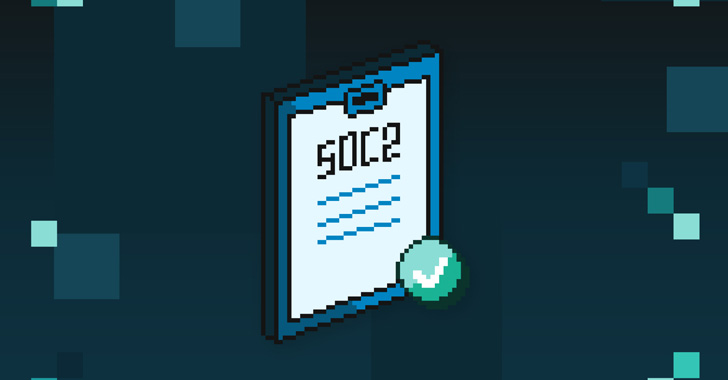SOC 2 may be a voluntary standard, but for today’s
security-conscious business, it’s a minimal requirement when
considering a SaaS provider. Compliance can be a long and
complicated process, but a scanner like Intruder[1]
makes it easy to tick the vulnerability management box.
Security is critical for all organisations, including those that
outsource key business operation to third parties like SaaS vendors
and cloud providers. Rightfully so, since mishandled data –
especially by application and network security providers – can
leave organisations vulnerable to attacks, such as data theft,
extortion and malware.
But how secure are the third parties you’ve entrusted with your
data? SOC 2 is a framework that ensures these service providers
securely manage data to protect their customers and clients. For
security-conscious businesses – and security should be a priority
for every business today – SOC 2 is now a minimal requirement when
considering a SaaS provider.
What SOC 2 means for SaaS
SaaS providers understand the benefits of a SOC 2 report for
their business, and their customers. It gives them a competitive
advantage. It helps continually improve their own security
practices. It helps them to meet customer expectations. Most
importantly, it gives current and prospective customers peace of
mind. They can be confident that the SaaS provider has a rock-solid
information security practice in place to keep their data safe and
secure.
What is SOC 2?
Developed by the American Institute of CPAs (AICPA[2]), SOC 2 requires
compliance for managing customer data based on five criteria or
“trust service principles” – security, availability, processing
integrity, confidentiality and privacy.
It’s both a technical audit and a requirement that comprehensive
information security policies and procedures are documented and
followed. As with all the best compliance certifications and
accreditation, it is not just about joining the dots. It involves a
complex set of requirements that must be documented, reviewed,
addressed and monitored. There are two types or stages: Type 1 and
Type 2.
Type 1 or 2?
A SOC 2 Type 1 report evaluates cybersecurity controls at a
single point in time. The goal is to determine whether the internal
controls put in place to safeguard customer data are sufficient and
designed correctly. Do they fulfil the required criteria?
A Type 2 report goes a step further, where the auditor also
reports on how effective those controls are. They look at how well
the system and controls perform over time (usually 3-12 months).
What is their operating effectiveness? Do they work and function as
intended?
It’s not just for tech
If you think only tech companies like SaaS or cloud service
providers need SOC 2 certification, think again. Whatever vertical
or industry sector, SOC 2 certification shows your organisation
maintains a high level of information security.
That’s why healthcare providers like hospitals or insurance
companies may require a SOC 2 audit to ensure an additional level
of scrutiny on their security systems. The same could be said for
financial services companies or accountancies that handle payments
and financial information. While they may meet industry
requirements such as PCI DSS (Payment Card Industry Data Security
Standard), they often opt to undergo SOC 2 for additional
credibility or if clients insist on it.
Cost-effective compliance
The rigorous compliance requirements ensure that sensitive
information is being handled responsibly. Any organisation that
implements the necessary controls are therefore less likely to
suffer data breaches or violate users’ privacy. This protects them
from the negative effects of data losses, such as regulatory action
and reputational damage.
SOC 2-compliant organisations can use this to prove to customers
that they’re committed to information security, which in turn can
create new business opportunities, because the framework states
that compliant organisations can only share data with other
organisations that have passed the audit.
SOC 2 simplified by Intruder
One control you must pass for your SOC 2 report is vulnerability
management. And for that you can use Intruder. Intruder is easy to
understand, buy and use. Just sign up and pay by credit card. Job
done. You can tick the SOC 2 vulnerability management box in under
10 minutes.
Of course, Intruder is also a great tool to use on a day-to-day
basis. Not only for its continuous monitoring[3]
to ensure your perimeters are secure, but for other scenarios that
may require a SOC 2 report such as due diligence. If your business
is trying to secure new investment, going through a merger, or
being acquired by another business, due diligence will include your
security posture, how you handle data, and your exposure to risk
and threats. With Intruder, it’s easy to prove you take your
information security seriously.
References
- ^
Intruder
(www.intruder.io) - ^
AICPA
(us.aicpa.org) - ^
continuous monitoring
(www.intruder.io) - ^
Try
Intruder for free for 30 days at intruder.io
(www.intruder.io)
Read more https://thehackernews.com/2022/09/why-vulnerability-scanning-is-critical.html
